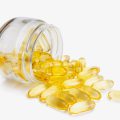
Blogs
Consumer Health-USA/Europe/Asia/ROW Regulatory News-Nov. 2023
USA
Structured Product Labeling (SPL) Implementation Guide with Validation Procedures for Cosmetic Product Facility Registrations and Product Listings
The U.S. Food and Drug Administration published an updated Structured Product Labeling (SPL) Implementation Guide with Validation Procedures. The guide includes updates to the cosmetics product facility registrations and product listings that are included within the SPL framework.
Compliance Policy for Cosmetic Product Facility Registration and Cosmetic Product Listing
The U.S. Food and Drug Administration (FDA) issued guidance on its intent to delay enforcement of the requirements for cosmetic product facility registration and cosmetic product listing requirements under the Modernization of Cosmetics Regulation Act of 2022 (MoCRA) for six months to help ensure that industry has sufficient time to submit such facility registration and product listing information.
Leafy Green STEC Action Plan
The U.S. Food and Drug Administration has updated its Leafy Green STEC Action Plan (LGAP). The LGAP was first released in 2020 following a number of reoccurring outbreaks linked to leafy greens that were caused by Shiga toxin-producing E. coli (STEC). The update includes additional information on sampling assignments, method developments, and a status update on the Agency’s long-term longitudinal studies in Arizona and California. As part of this update, the Agency is also releasing a new fact sheet on Adjacent and Nearby Land Uses and their impact on the safety of produce grown nearby.
Small Entity Compliance Guide on Final Rule to Revoke the SOIs for Lowfat Yogurt and Nonfat Yogurt and to Amend the Standard for Yogurt
The U.S. Food and Drug Administration announced the availability of a Small Entity Compliance Guide (SECG) to help explain the actions a small entity must take to comply with recent changes made to “Milk and Cream Products and Yogurt Products; Final Rule To Revoke the Standards for Lowfat Yogurt and Nonfat Yogurt and To Amend the Standard for Yogurt.” The final rule, which was published on June 11, 2021 and modified on December 15, 2022 and April 14, 2023, amends and modernizes the standard of identity for yogurt by allowing for technological advances in yogurt production while preserving the basic nature and essential characteristics of yogurt.
Update of the Electronic Submission Process for Food Ingredient and Packaging Materials Submissions
The U.S. Food and Drug Administration (FDA) is announcing an update to its online submission module to improve communication for industry who send regulatory submissions to FDA’s Office of Food Additive Safety (OFAS). The CFSAN Online Submission Module (COSM), is a web-based tool that walks users through a step-by-step process to assemble and send fully electronic regulatory submissions directly to OFAS, eliminating the need for printing and mailing of paper submissions.
EUROPE
New EU restrictions on microplastics in cosmetic products
The European Union is taking many measures in the context of the green transition, such as phasing out intentionally added microplastics in several products, including cosmetics. Microplastics are of concern because they do not biodegrade, permanently polluting ecosystems and food chains. In this regard, the European Commission adopted Regulation (EU) 2023/2055, amending REACH as regards synthetic polymer microparticles.
Restriction proposal on certain chromium (VI) substances
The European Chemical Agency (ECHA) announced that a European Commission mandate was received which requested the preparation of an Annex XV report for a possible restriction of the chromium (VI) substances that currently from entries 16 and 17 of the REACH Authorisation List (Annex XIV), as a minimum. The restriction process will follow the standard REACH procedure. The RAC and SEAC will prepare the evaluation, after which the European Commission will adopt the restriction. In this case, the substances will be removed from the Authorisation List, fort the first time in REACH’s history.
Commission sets new reduced limits for nitrites and nitrates as food additives
To ensure that the food on the market in the EU is as safe as possible for consumers and protect them from carcinogenic substances as part of the actions under Europe’s Beating Cancer Plan, the Commission is setting new limits for the use of nitrites and nitrates as food additives. These new significantly reduced limits protect against pathogenic bacteria (e.g., Listeria, Salmonella, Clostridia), as well as reduce the exposure to nitrosamines, some of which are carcinogenic. Based on a stringent scientific assessment by EFSA, the new limits were endorsed unanimously by the Member States last spring.
ASIA
Indonesia
Time Requirements for Obtaining Cosmetics Import Certificate
Indonesian Agency for Drug and Food Control (BPOM) issued amendments to the Regulation for Supervision on the Entry of Drugs and Food into the Territory of Indonesia. The Regulation outlines the entry requirements for imported drugs (including cosmetics) and food. The amendments will take effect on December 8, 2023. According to the current Regulation, importers of cosmetic products must obtain an import certificate (SKI Post Border) either before or within seven days after the goods are released from the customs area. Importing drugs (including cosmetics) and food that are not stated in the SKI Post Border certificate is prohibited in Indonesia.
Cosmetic Adverse Reaction Reporting Requirements
Indonesia released the amended draft of the Regulation for Cosmetics Adverse Reaction Monitoring for public consultation. 1 This Regulation aims to provide clarity on the requirements for reporting cosmetics adverse reactions. It defines the adverse reactions, specifies the obligations of notifiers, and outlines the approaches for reporting adverse reactions. The amended draft introduces changes to specific reporting requirements.
South Korea
Cosmetic Safety Standard: Ingredients and CAS No.
As the Ministry of Food and Drug Safety (MDFS) revealed on November 30, 2023, modifications related to seven prohibited ingredients and three restricted ingredients are included in the Regulation on Safety Standards, etc. for Cosmetics. Besides, the prohibited ingredients and restricted ingredients are added with the relevant CAS No. and chemical name. The regulation is effective on November 30, 2023, except for the changes related to the hair dye ingredients, which will be implemented six months later.
China
Detailed Dossier Requirements for Toothpaste Notification
China National Medical Products Administration (NMPA) unveiled the definitive edition of the Provisions for Management of Toothpaste Notification Dossiers (the Provisions). Shaped by two rounds of public consultations in January 2021 and September 2023, this final version is set to be enforced from December 1, 2023. Comprising 3 chapters, 32 articles, and 3 annexes, the Provisions specifies the responsibilities and obligations of toothpaste notifiers, the user-information-related dossiers, and the necessary documentation for initial toothpaste notification, etc.
Administrative Measures for FSMP Registration
State Administration for Market Regulation (SAMR) unveiled the updated Administrative Measures for Registration of Foods for Special Medical Purpose, replacing the 2016 version. Major revisions include priority review and approval procedures, situations not approved for registration, labels, penalties, and measures to optimize the registration procedure. The new version will come into force on January 1, 2024.
Thailand
Labeling Regulations for Ampoule, Vial, and Syringe Cosmetics
The Thai Food and Drug Administration (Thai FDA) conducted a public consultation to gather feedback on proposed labeling regulations for ampoule, vial, and syringe cosmetics. This draft spells out essential requirements for labeling, including the necessary content, position, language, and other pertinent details.
Revision of the Maximum Level of Contaminants in Food
Thailand Food and Drug Administration issued a notification, seeking for public feedback on the proposed amendments regarding maximum levels (ML) of food contaminants. The authority prepares three options for each case and the public are asked to complete the assessment sheets regarding the impacts caused by the three options before December 29, 2023. The public opinions will be one of the significant references for the modification.
Japan
New Policy on Food Contact Materials
The Ministry of Health, Labour and Welfare (MHLW) of Japan issued Notification No. 324, officially announcing the Positive List (PL) for food utensils, containers, and packaging from June 1, 2025. Additionally, partial modifications have been made, including elimination, consolidation of substance names, and changes in restrictions, as a result of updating the PL management scope for synthetic resins. These modifications will also come into force on June 1, 2025.
Philippines
Philippine National Standards (PNS) and Its Recommended Code of Practices (RCP) for Processed Food Products as Technical Regulation
The Philippines FDA issued a draft regarding the adoption of the Philippine National Standards (PNS) and its Recommended Code of Practices (RCP) for processed food products as technical regulation. All concerned stakeholders may submit comments to tkcmartirez@fda.gov.ph prior to December 5.
ROW
Taiwan
Registration Requirements for Infant Formula, Formula for Certain Disease, and Food Additives
Taiwan Food and Drug Administration (TFDA) published the amendment to the Regulations Governing the Management of the Review, Registration and Issuance of Permit Documents for Food and Related Products. The amendment takes into effect immediately, except for a one-year grace period granted to provisions related to the original hygiene analysis report.
Australia
Regulation of Sports Supplements
On November 10, 2023, Department of Agriculture, Fisheries and Forestry (DAFF) of Australia issued a notification of changes to the regulation of sports supplements, with effect from November 30, 2023. From November 30, 2023, products for the improvement or maintenance of physical or mental performance in sport, exercise, or recreation activity, and are supplied in the form of tablet, capsule or pill, will be required to be registered as therapeutic goods (medicine) under the supervision of the Therapeutic Goods Administration (TGA). Products containing only glucose are exempted from such registration.
Categories
- Biopharma (42)
- Consumer Health (9)
- Cosmetics (4)
- Diagnostics (5)
- Digital Health (8)
- Food (2)
- Medical Device (90)
- OTC (3)
- Standards (40)


